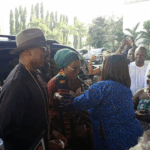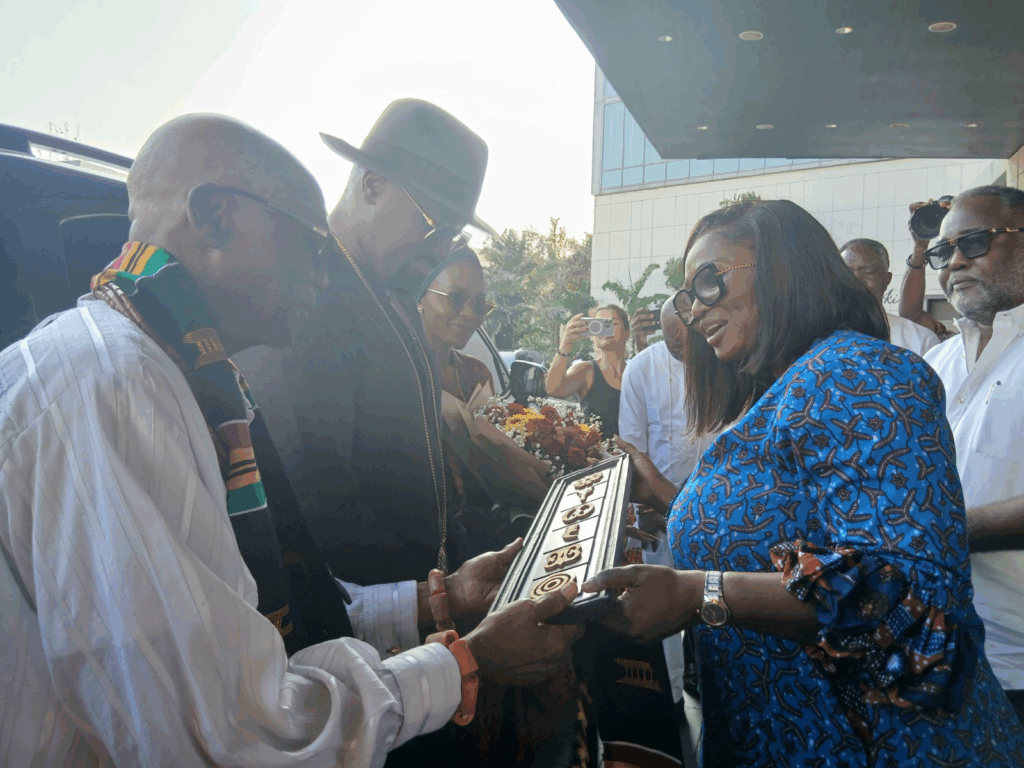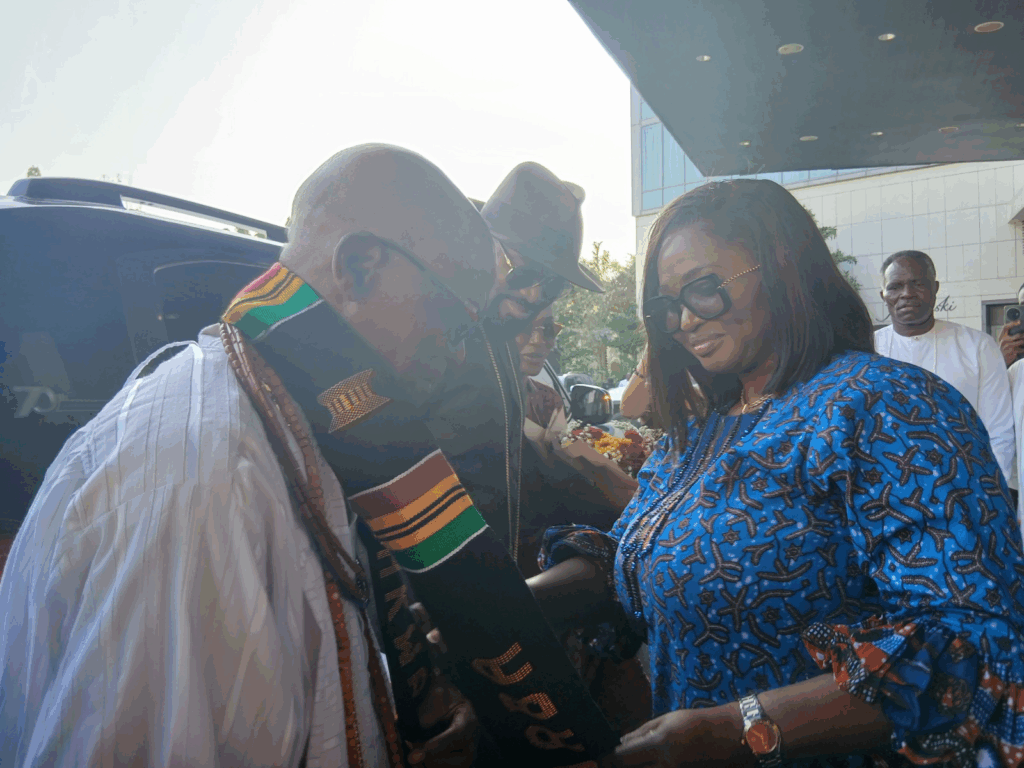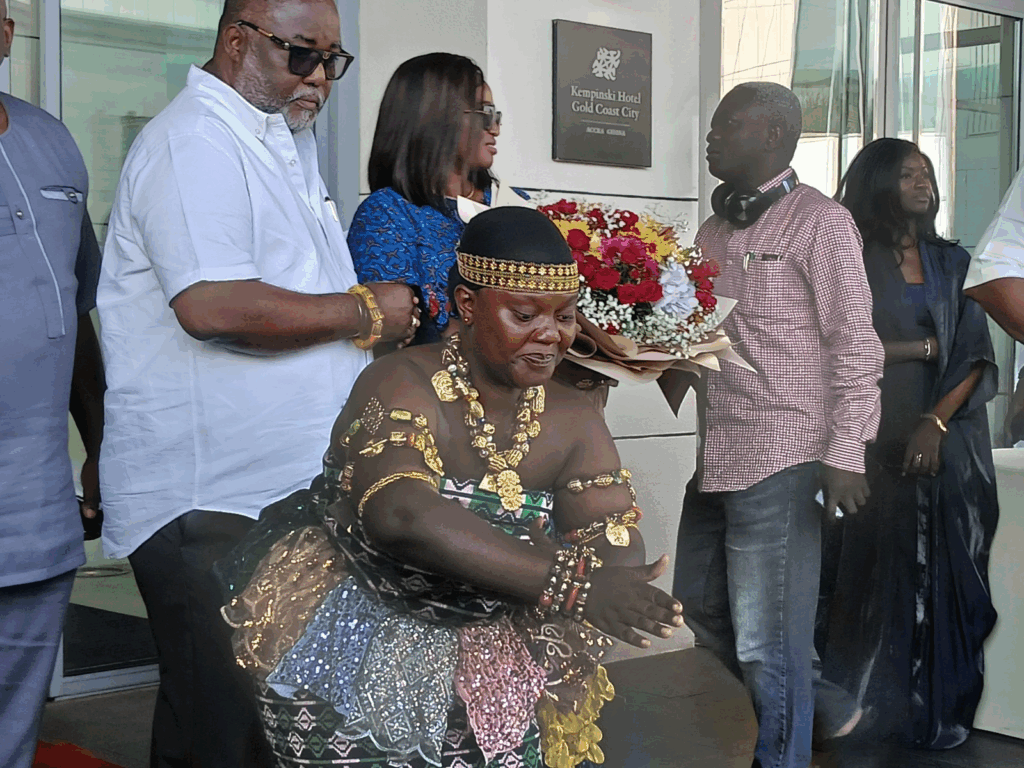
The Ghana Tourism Authority (GTA) has welcomed His Majesty Ogiame Atuwatse III, the Olu of Warri Kingdom in Nigeria, to Ghana ahead of the annual Fetu Afahye Festival in the Central Region.
The revered monarch, who was first enstooled as a child at the age of five, is regarded as one of Nigeria’s most prominent traditional rulers.
His presence at this year’s festival highlights the deepening cultural ties between Ghana and Nigeria, and the importance of traditional leadership in fostering unity across the continent.
Speaking on the visit, Mrs Maame Efua Houadjeto, Chief Executive Officer, GTA expressed appreciation to all who supported the welcome of the Olu, describing it as a “big honour” for the nation.

“Thank you for helping the GTA to welcome the Olu of Warri Kingdom. This king coming to Ghana is a ‘big deal’, and it is our duty to make him feel special.”
The Olu of Warri was invited by Osabarima Kwesi Atta II, Paramount Chief of the Oguaa Traditional Area, as a special guest for the 2026 Fetu Afahye Festival, one of the most celebrated festivals in the Central Region, particularly in Cape Coast.
“Tourism treasures traditions, and this visit underscores the value we place on heritage and cultural exchange. He is very important in the Warri Kingdom, and his visit here is truly a big deal”, she added.

Mrs Houadjeto said the monarch would spend the weekend in Ghana, participating in key activities lined up for the Fetu Afahye.
“The visit forms part of broader efforts to strengthen pan-African unity through cultural diplomacy.”
According to the CEO, the Olu of Warri is just one of several high-profile traditional leaders expected in Ghana this weekend.

“Between nine to eleven kings from across Africa are anticipated to join the festivities in Cape Coast, in what is shaping up to be a truly continental celebration of heritage and unity.
She said, “for us, it is not just an event, it is a testament to the power of culture to connect people across borders.”
The Fetu Afahye Festival continues through the weekend with traditional processions, durbars, music, and cultural exhibitions aimed at showcasing the rich history and identity of the Central Region.